How a butterfly takes flight
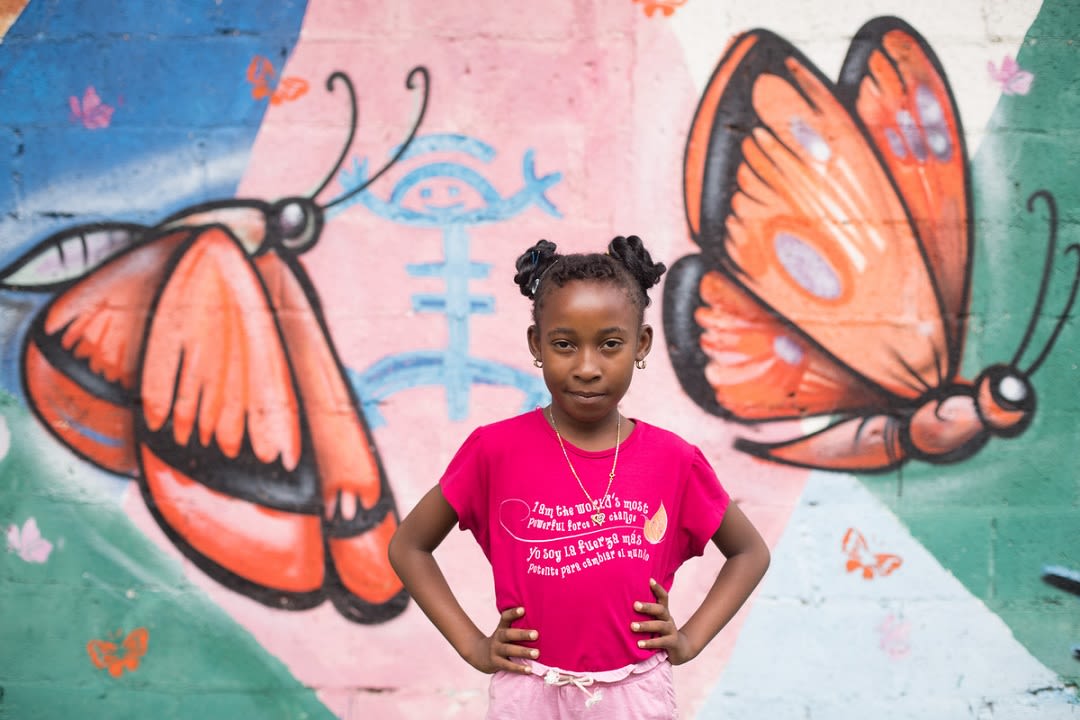
At first glance, the Dominican Republic looks like a tropical paradise. Golden sun shines down on palm trees, coral reefs and more than 1,000 miles of white sand beaches. The sea breeze carries the scent of coconuts and the sound of waves lapping the shore.
On the north coast lies a small beach town called Cabarete.
Tourists come from all over the world to surf and swim in crystal clear waters.
But there's a darker side to this tropical paradise.
Violence against women is worryingly common, huge numbers of girls become pregnant and enter into informal unions as teenagers and tourists visit in droves for sex tourism.
It's not always easy growing up as a girl here.
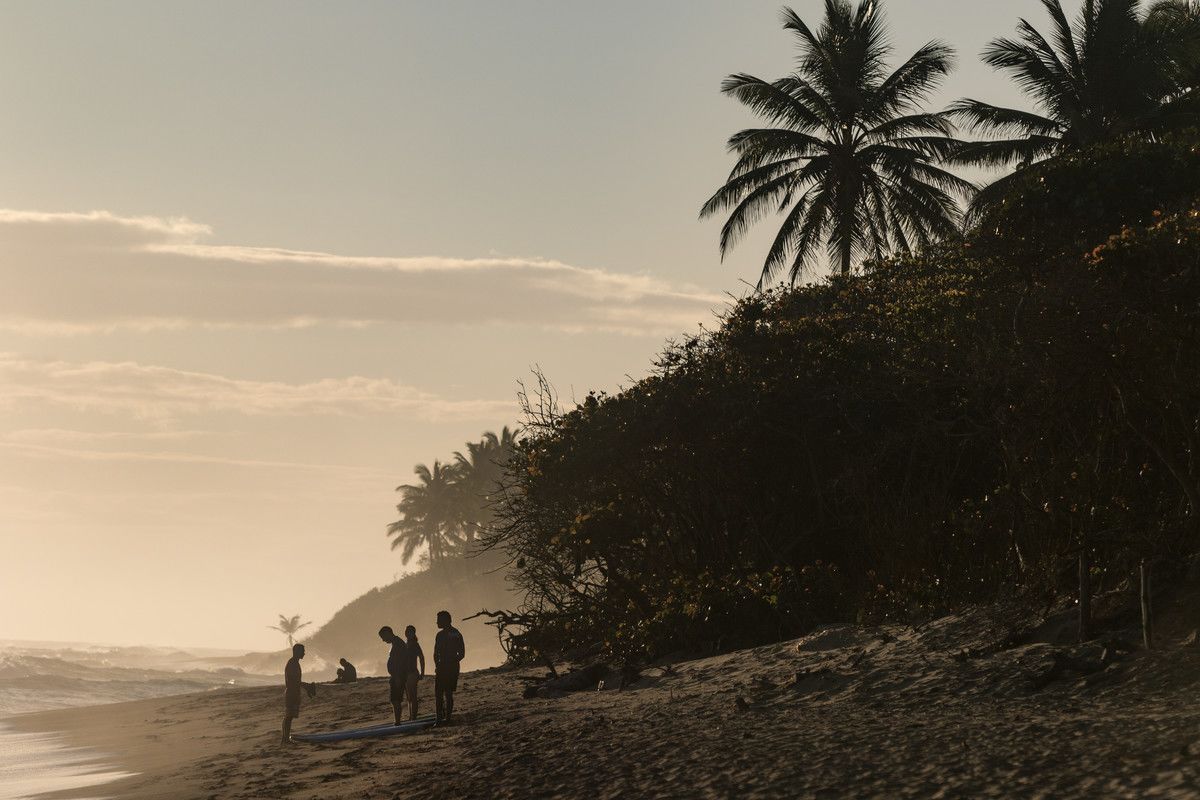
More than 1 in 3 girls in the Dominican Republic gets married or enters an informal union before she is 18
Source: UNICEF
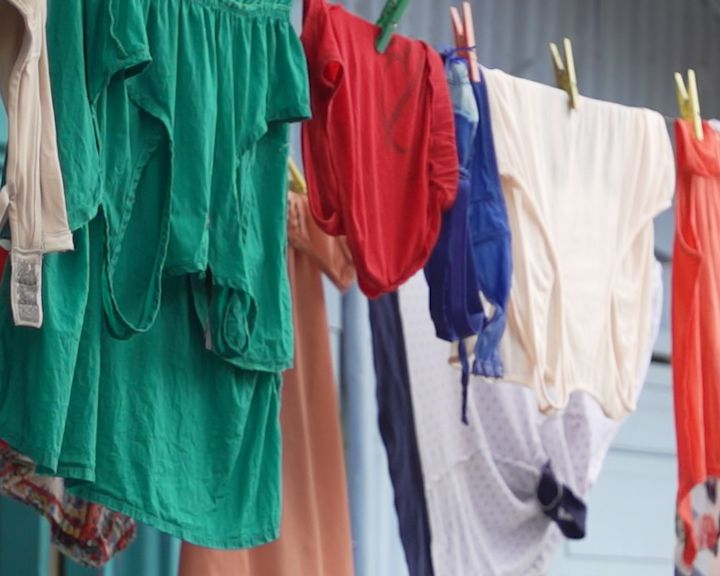
MABREIDY
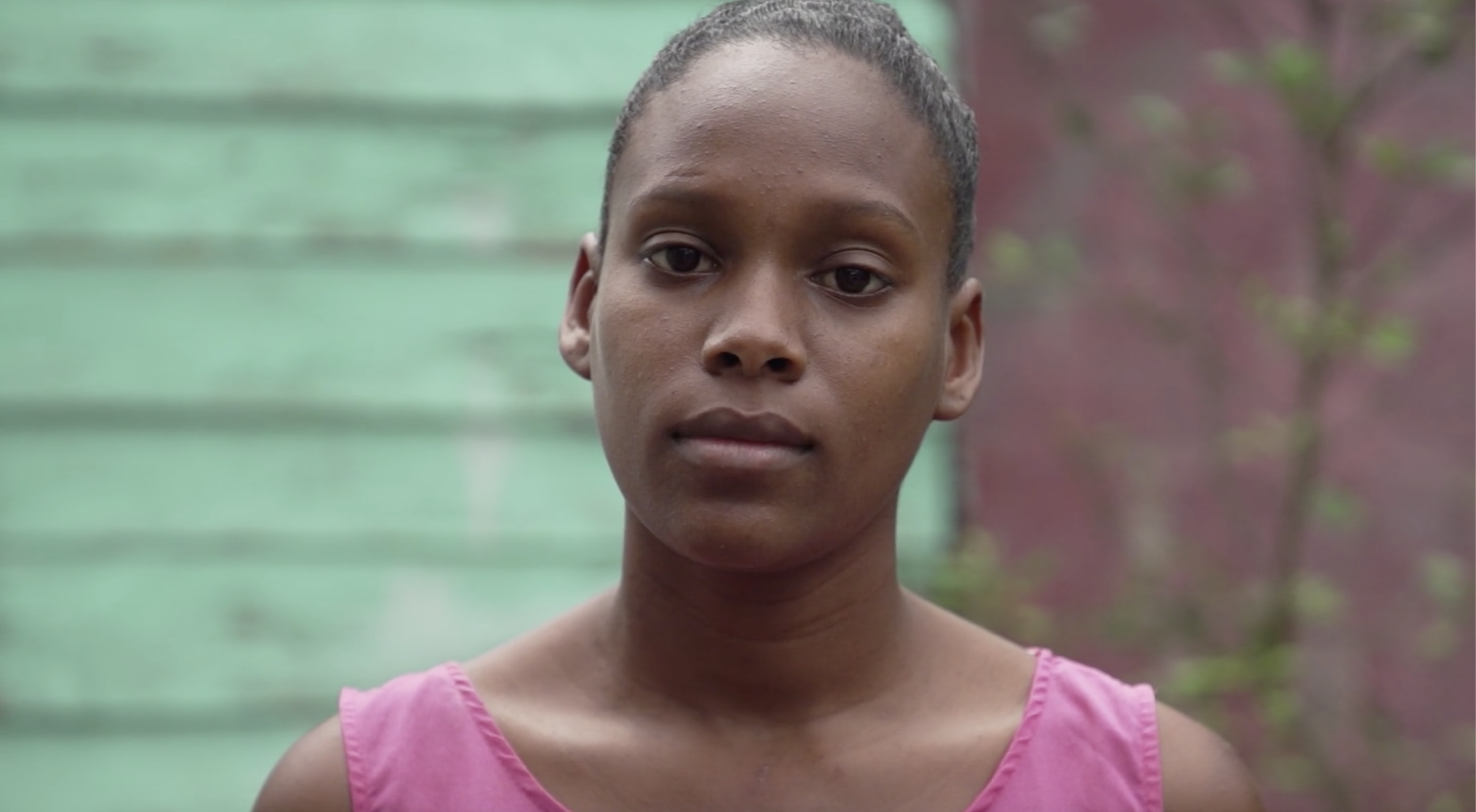
Meet Mabreidy.
At 17, she became pregnant and dropped out of school.
"All my life I've lived here in Cabarete. I love the beach, I love the atmosphere.
"But there are very chauvinistic people here and girls are treated differently.
"Boys are given more freedom and men don’t care if something bad happens to a girl.
"When you're a girl here, you need to be guided by your parents or you might make mistakes like I made mistakes. I had a lot of things ahead of me."
Mabreidy's life has changed since she became pregnant.
Instead of studying, swimming and kitesurfing, she has two little boys to care for.
"It's not that having a child is something bad - it's a blessing, but I had other things ahead of me.
"You should study before having a baby. I give this advice to [my sister] Naomi, so that what happened to me doesn't happen to her.
"I could've done what I wanted, but now I have to care for my kids."
Mabreidy's story is far from unusual.
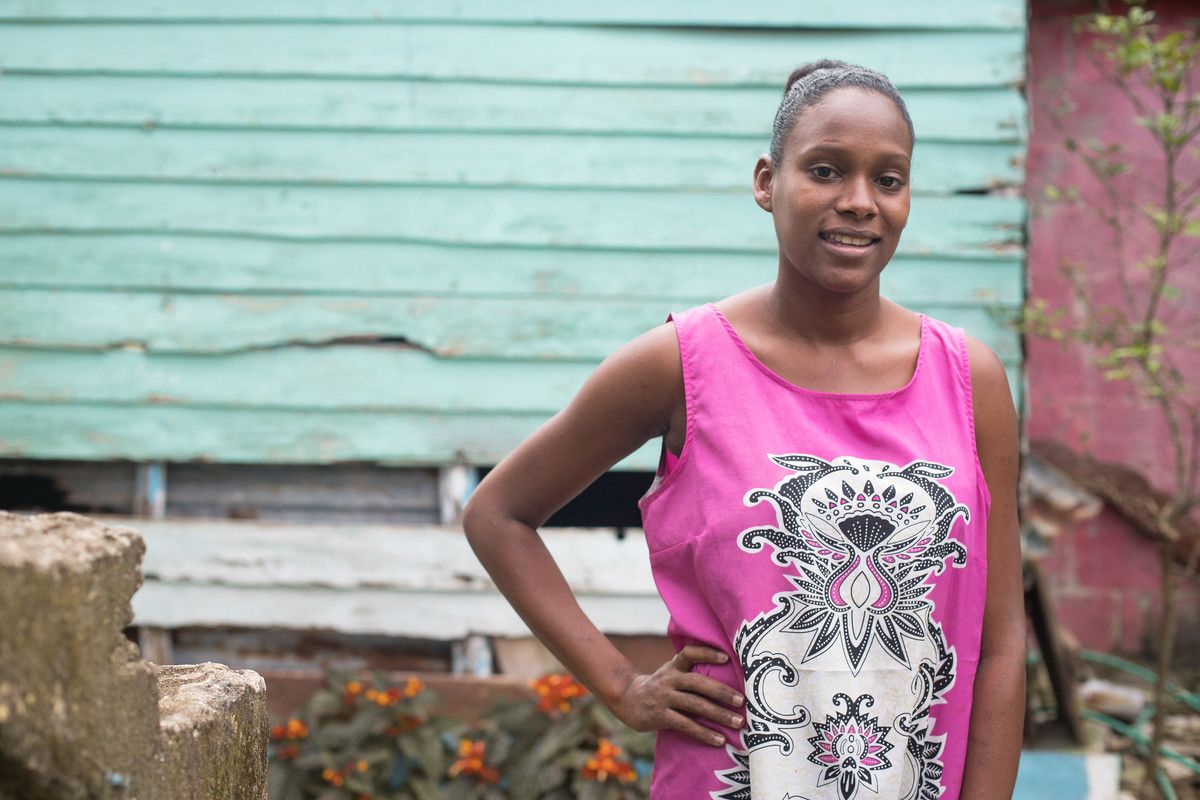
Sometimes a girl gets pregnant and then moves in with her older partner.
Sometimes she's desperate to escape violence at home, so she moves in with her partner to get away.
There's no white dress or wedding ceremony. But in the eyes of the community, she's a married woman now.
When girls marry young, they're likely to leave school. Young mothers end up with no education, living in poverty and at risk of domestic abuse.
When a girl has so many responsibilities at home, it's hard for her to invest in herself.
If she's much younger than her partner, with no schooling and few job options she can easily end up being totally financially dependent on him.
It's not always paradise for women and girls in the Dominican Republic.
But in one small beach town on the northern tip of the island, the tide is turning.
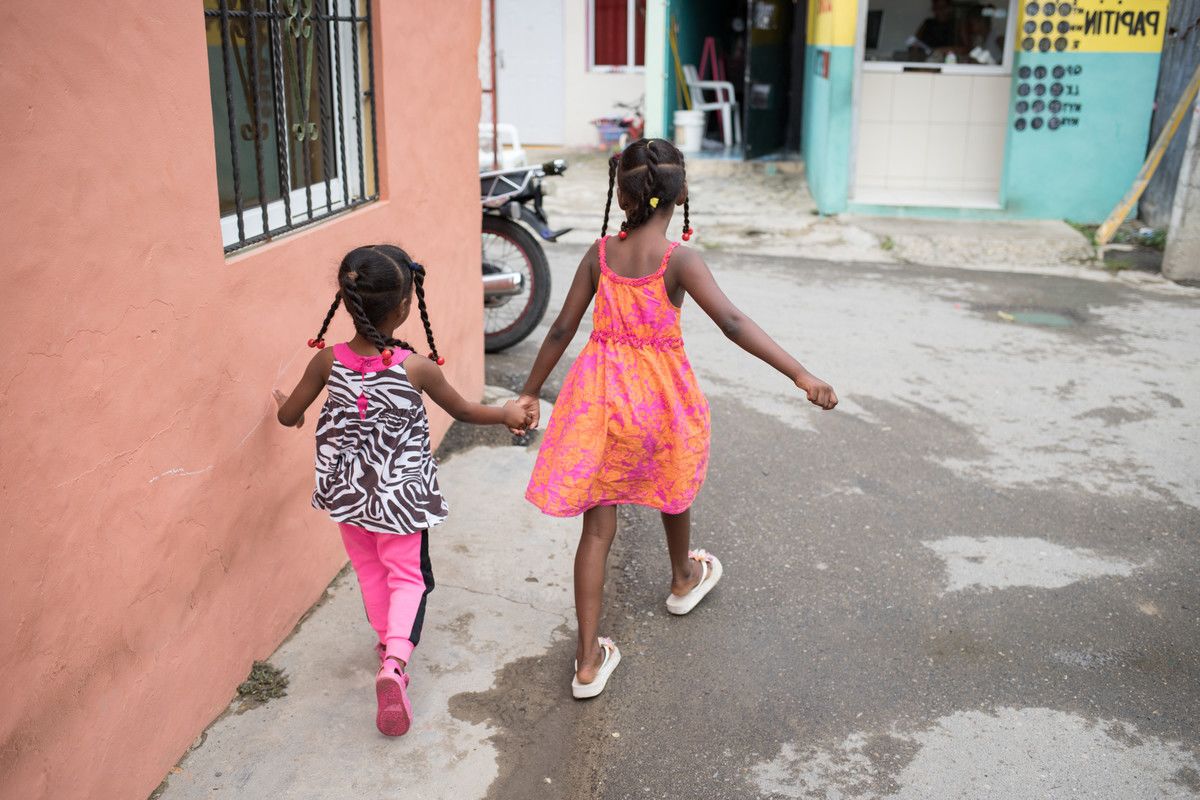
Our wings are fashioned by many hands
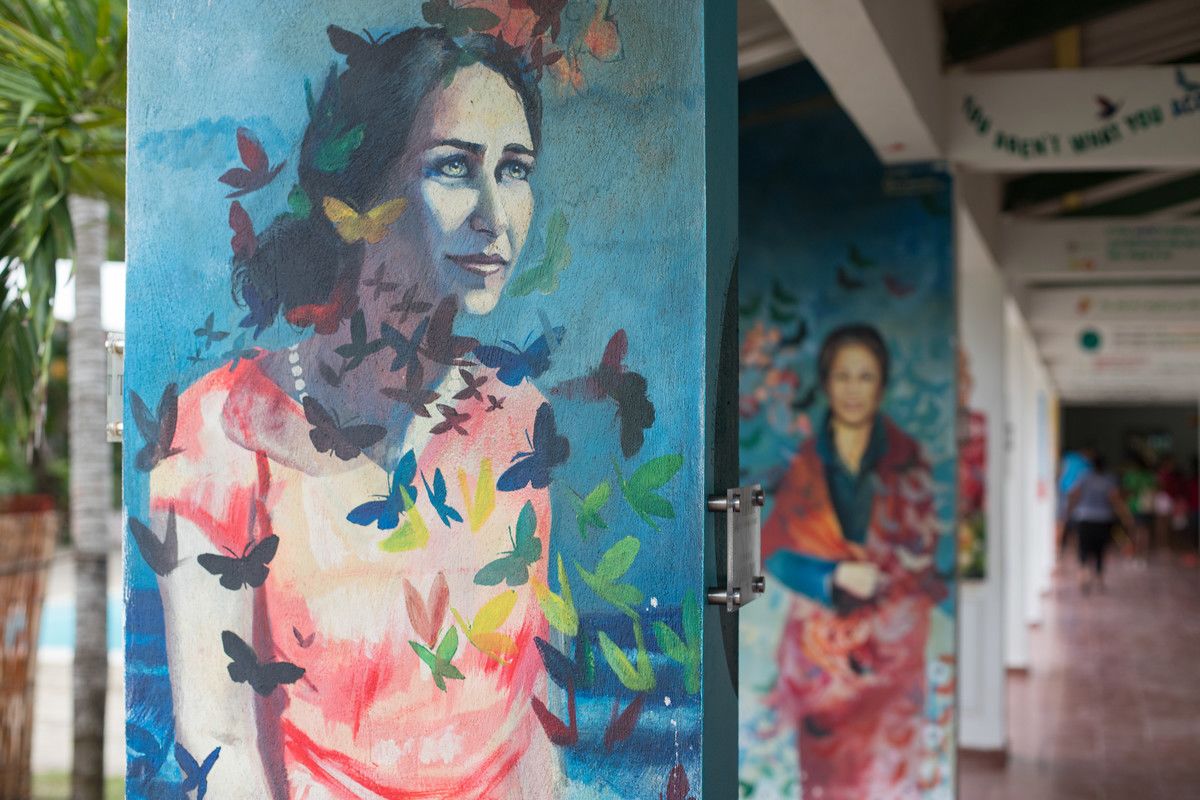
It's a weekday morning and the sun is blazing over Caberete.
On a road lined with bustling resorts, one building stands out. It's not a casino or an all-inclusive hotel. It's a place where girls are learning to spread their wings.
Girls are pouring out of a school bus, laughing and chatting.
They're all wearing T-shirts in vivid pink or green. Emblazoned across their chests are the slogans 'I'm the world's most powerful force for change' and 'Girls just want to have fun-damental human rights.'
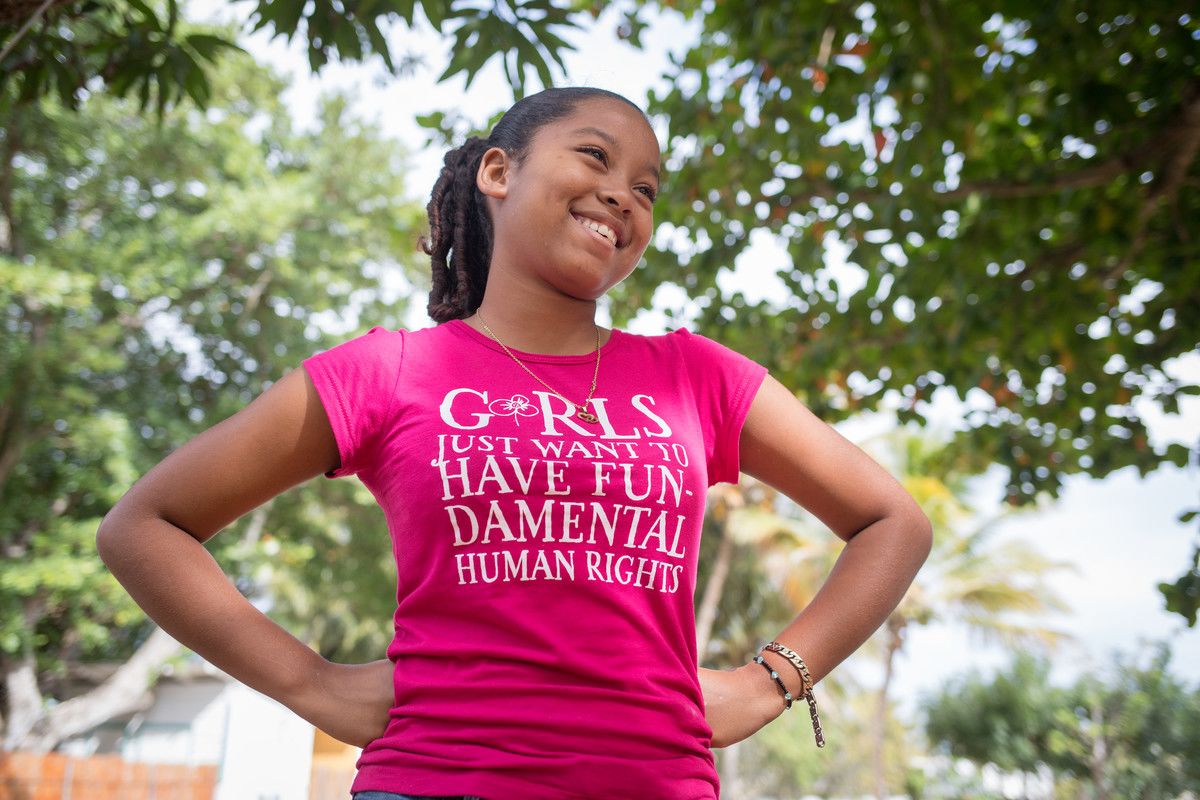
As they wait for the day to start, they play on the basketball court. In a country where basketball is heavily dominated by boys and men, they're playing somewhere special. It's one of just a few courts that exists for girls and girls only.
Soon it's time for registration. The 'Mariposas' join hands in a circle. The first game of the day is 'cat and mouse.' When the staff ask for a volunteer, girls' hands shoot up into the air. Everybody wants to be either the 'mouse' who must escape the circle of Mariposas, or the 'cat' who must try to catch her.
The mariposas play a game of 'cat and mouse' at registration time
The mariposas play a game of 'cat and mouse' at registration time
Now it's time for classes, and the girls run off excitedly in twos and threes down corridors lined with richly-coloured murals.
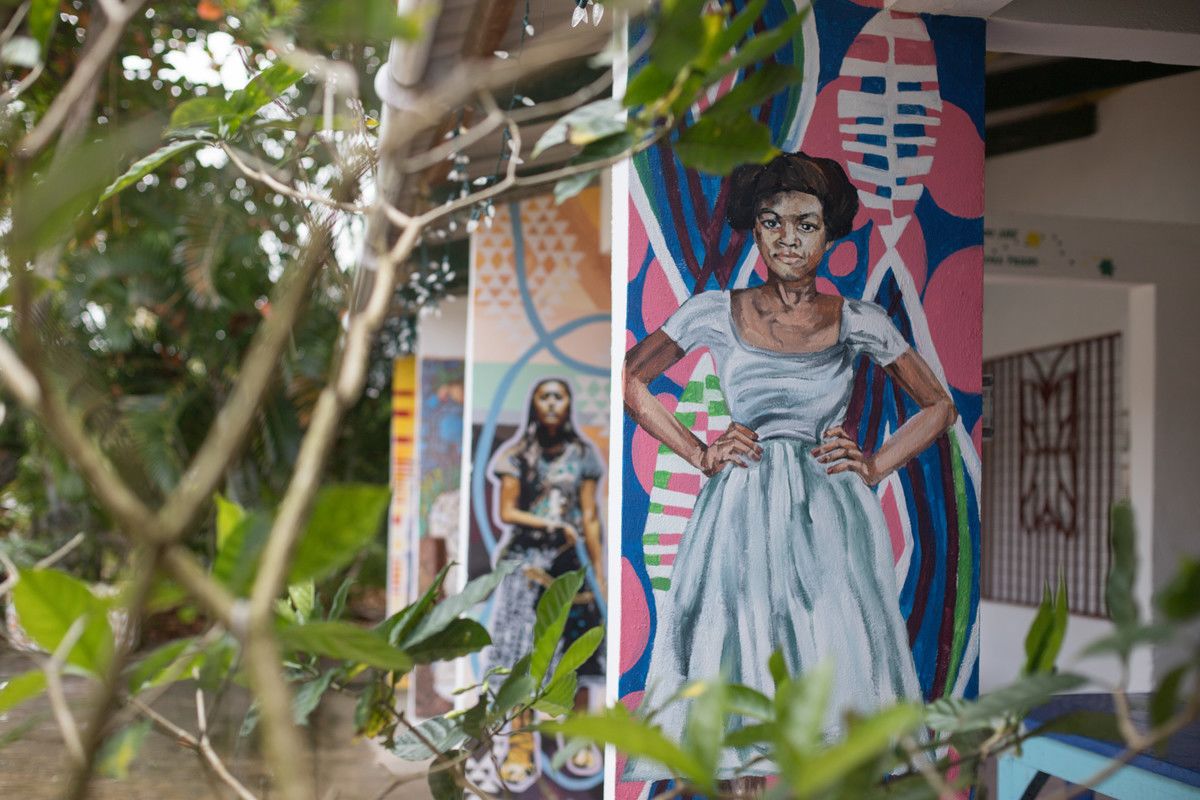
Girls paint their heroes on to the walls at the Mariposa Foundation
Girls paint their heroes on to the walls at the Mariposa Foundation
The murals show inspirational women from Latin America and the Caribbean. Women with Afro-Caribbean heritage. Women that look like they do.
The Mariposa DR Foundation is flooded in light. There's colourful art on every wall, and lush greenery outside.
At any time, the Mariposas [Spanish for 'butterflies'] might be reading, dancing or singing.
They might be learning how to care for the environment, practising their maths skills or up-cycling old sails into bags that they sell.
They might be getting support with their reading, practising aerial gymnastics or paddle-boarding to clear plastic from the local rivers.
And when they're not out in nature, they might be at the health and wellness centre or visiting the psychologist.
It's a place where girls are free to be bold, loud and totally themselves.
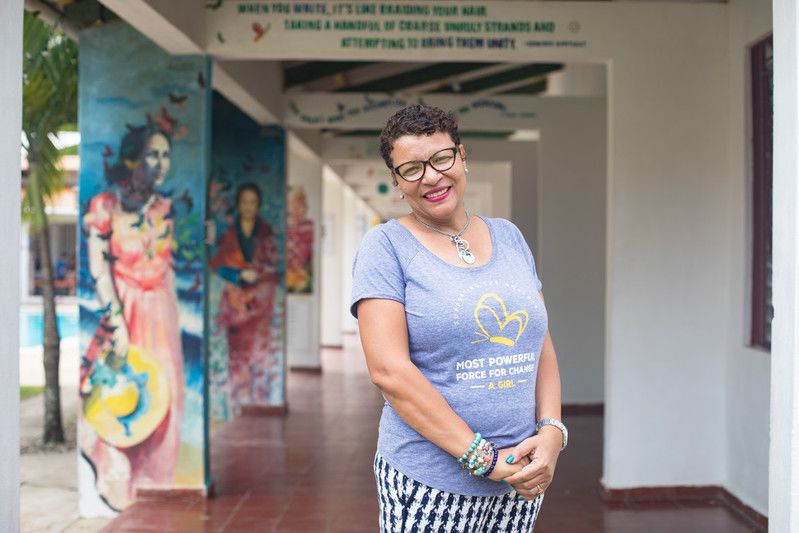
Alexandra is the onsite psychologist to support the girls and their parents.
Alexandra is the onsite psychologist to support the girls and their parents.
You could easily forget that when many of the girls go home, they're not going back to such a sunny setting.
"[Problems like poverty and violence] affect the girls here" says Amanda Bucci, Programme Director at the Mariposa DR Foundation.
"The difference is that here, the girls have space to feel free and safe, where they can grow. Be girls. Be the women of tomorrow.
"We create a space where they feel different, and their thinking changes.
"We support them. But they also support each other" she describes.
"All the girls are from here. However, 25% of girls are first or second generation Haitian. We have a lot of Haitian migrants in this country, and we celebrate Haitian culture. We celebrate the traditions, the differences and the similarities of both countries.
"We try to create a sisterhood between the Dominican girls and the Haitian girls."
So they're not just learning to stretch their wings as individuals. They're learning to lift each other up, too.
"We have academic programmes here from the basics like reading and simple maths, to science, robotics, technology," Amanda tells us.
"We take into account their well being. We offer yoga and meditation classes. We try to encourage wellness in all our activities.
"As part of our health programme,
all the girls
get medical and dental checks.
"We also have sports programmes.
We focus on water sports
as we live near the sea.
Once they learn to swim,
some girls surf
and others do kite surfing.
"If we see a girl showing a special talent, we support and encourage her."
"The Foundation is called Mariposa
DR Foundation for many reasons,
but the main one is
because of the Mirabal sisters. They were assassinated
by the country's dictator, Trujillo.
"The three sisters
are heroes in this country.
The word they used
against the dictatorship,
among themselves, was 'mariposas' [butterflies].
"And the symbolic meaning of butterfly
is transformation.
"So, all the girls, all of us,
are in the process
of transformation
from one thing to another,
and hopefully into something better
than when we started."
Girls attend the centre for ten years, from age eight to eighteen.
But a girl doesn't stop being a Mariposa when she turns eighteen.
"At the moment, we have 110 girls enrolled in programmes,
directly receiving our help.
But, we have about another 30
we continue to support
in other ways, like scholarships to university,
and other projects.
"We have many girls
working in the Foundation.
They work here and in our cafe called Cabarete Coffee.
"We also have an Up-cycle Project,
which involves
recycling boat sails.
Some of the mothers and girls have joined this programme
based on sewing and designing.
They then sell
a variety of these products."
In a community where sex work is one of the few ways for women to earn a living, making and selling products can be life-changing for a girl and her mother.
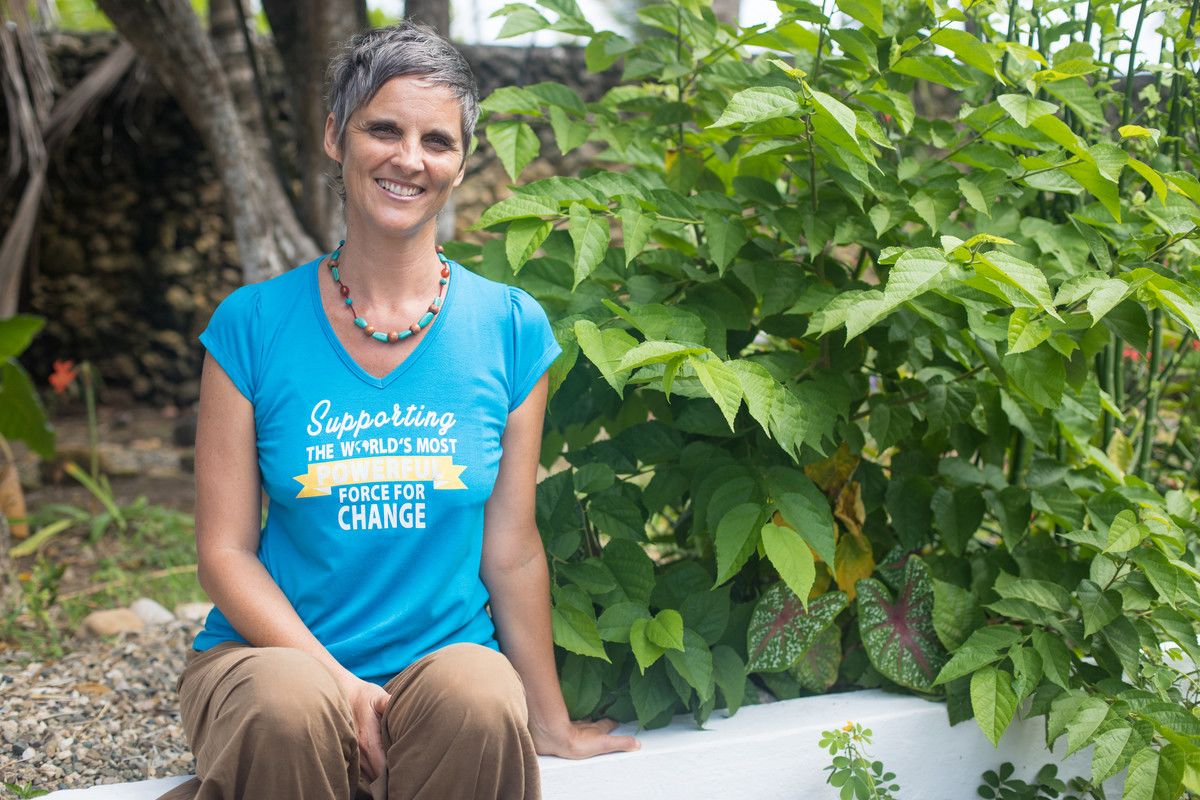
Amanda Bucci, Programme Director at the Mariposa DR Foundation
Amanda Bucci, Programme Director at the Mariposa DR Foundation
"You can see a girl with very poor reading skills compared to what we consider average, but she's reading, in spite of her family being illiterate for generations. For me that's a great achievement.
"We have other girls who are the superstars. Anybody who sees them can see the change in them.
"Those girls come to the Foundation from poor families and in the end, the result is a huge change.
"Here at the Foundation, we've had only one girl that was still in the programme and became pregnant.
"But, in comparison to what's out there, the rate drop in marriages is impressive.
Let's meet some of the Mariposas who have taken flight.
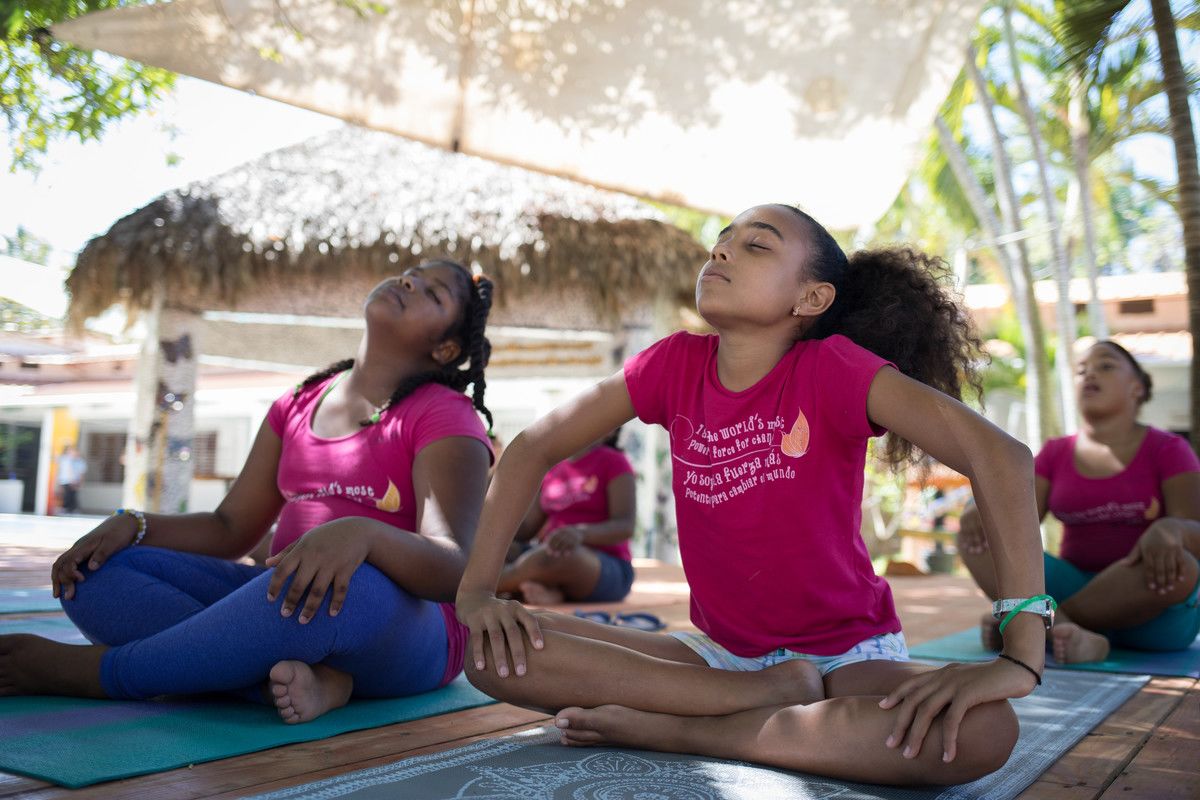
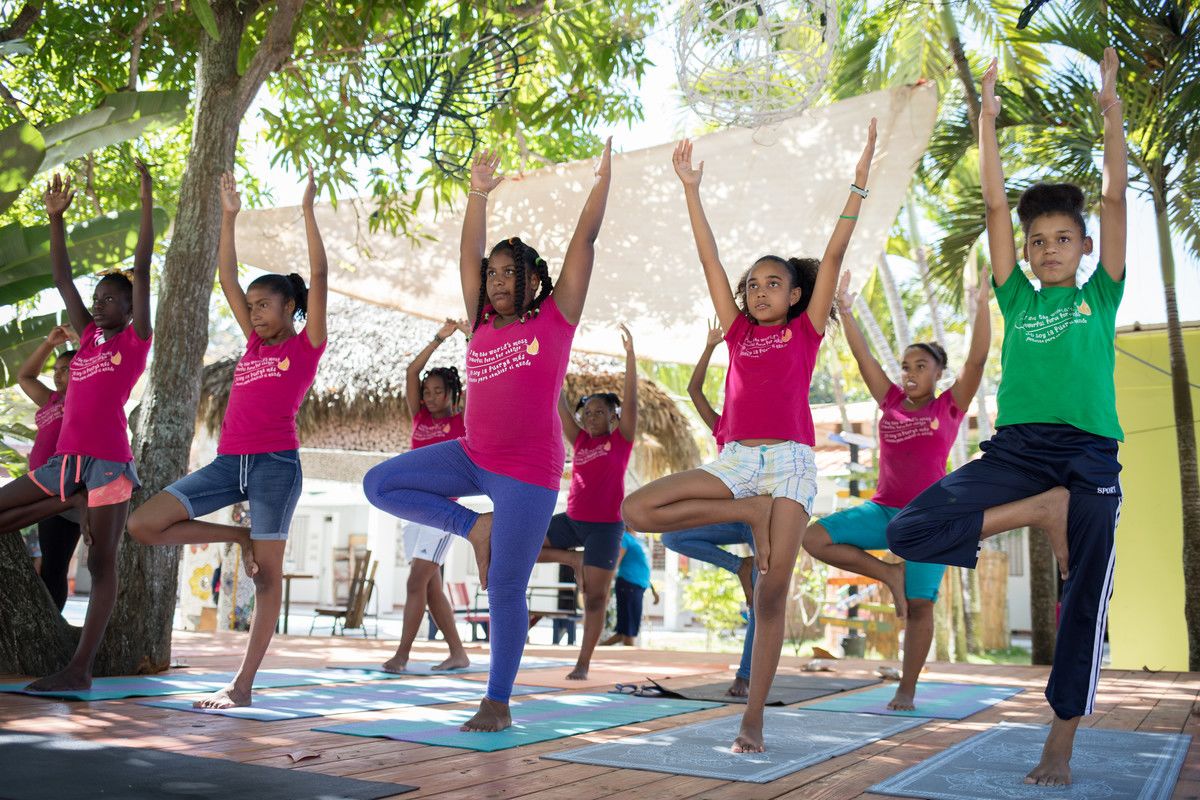
ALEXANDRA
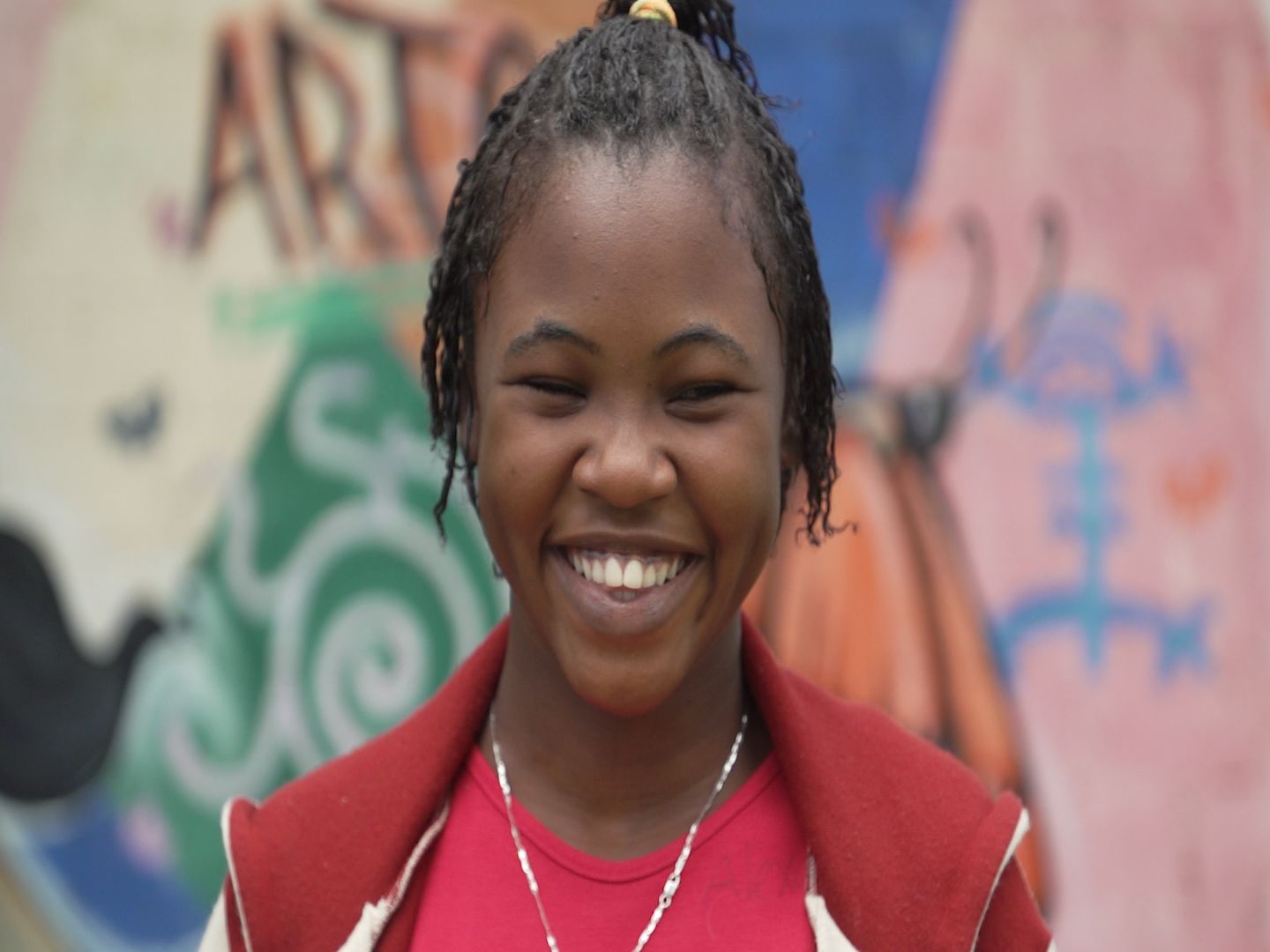
"My name is Alexandra. I'm sixteen years old. Many of my friends have left school and now they have children."
But Alexandra's life couldn't be more different from her friends.
She's in school, learning, growing and planning for a future that's all hers.
"One of my favourite things is the music group. I used to play the drums, and now I play electric bass, and the ukulele."
Alexandra's face lights up as she talks about her music.
"I've already had my first concert playing the bass."
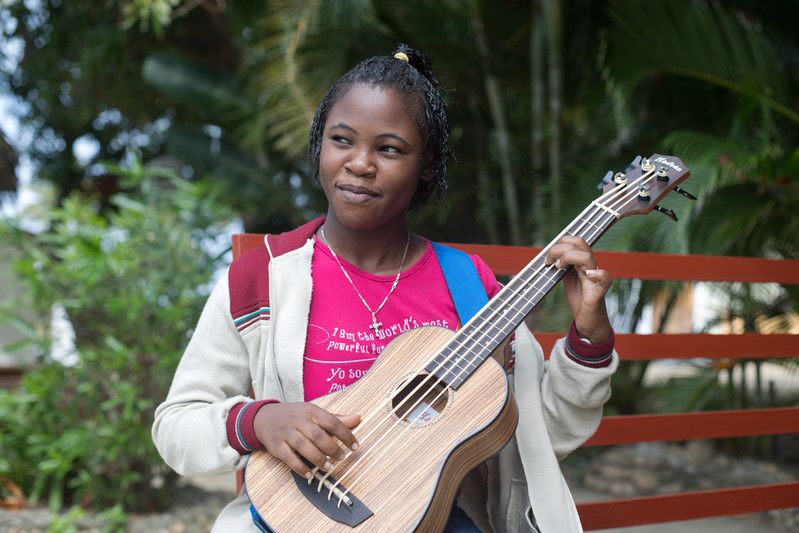
Alexandra plays her ukulele
Alexandra plays her ukulele
"I have learned something really valuable that I didn't know as a young girl.
"Us women, we are capable of doing many things. Thanks to that, I now feel empowered and want to follow my dreams.
"Every day my mother tells me to complete my education.
"She's always telling me 'you must finish your studies and become a professional woman.' She's always explaining to me that now is not the right time to marry.
"I've nearly finished school, which is something my mother wasn't able to do."
Alexandra's mother, Betty, wasn't so lucky.
She was born in Haiti, into deep poverty.
"My mother passed away" says Betty. "I'm the eldest of three children. I dropped out of school to support my brothers. I came here [to the Dominican Republic] because there was work here."
She had her first baby at 16 years old.
"I've been working really, really hard my entire life. I have seven daughters. Their father left me alone with them. Alexandra was seven months old when he left. Her father wouldn't support us financially.
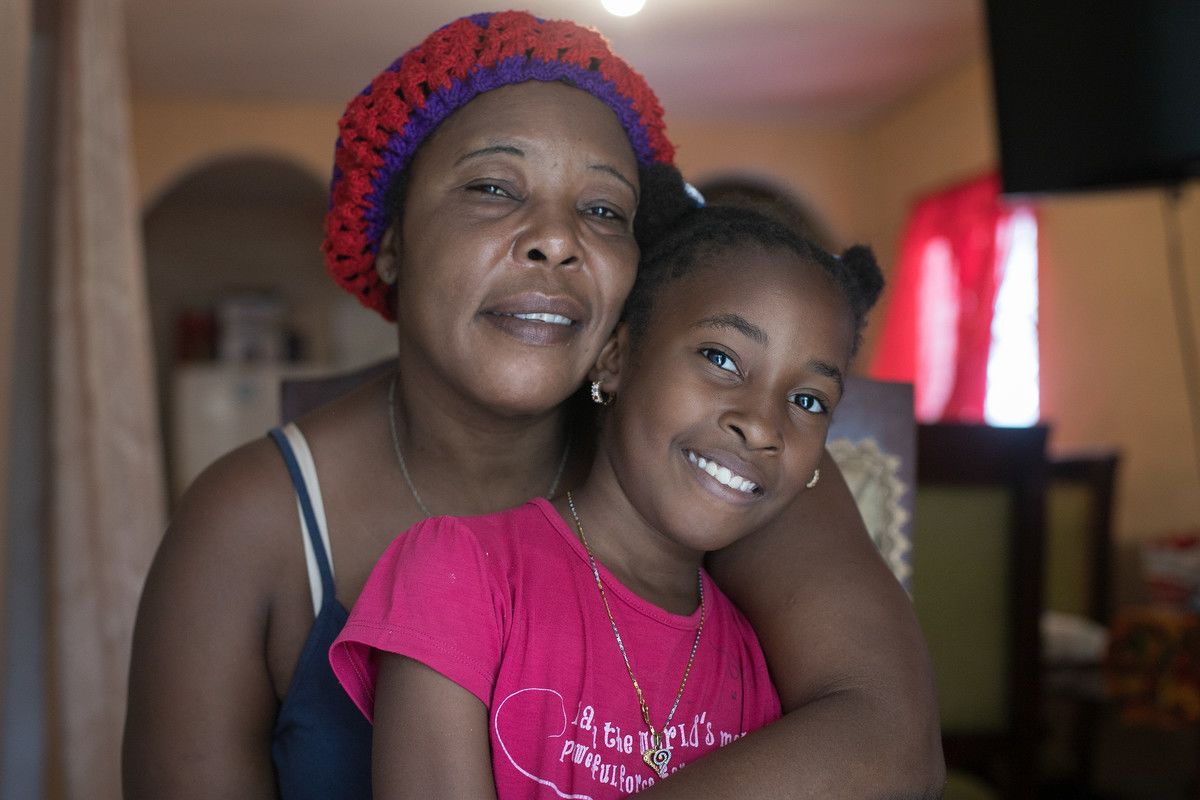
Betty with her youngest daughter, Yohanna
Betty with her youngest daughter, Yohanna
"I have been working so hard my whole life, I don't want my daughters to have to go through the same."
Now she urges Alexandra - and her youngest daughter Yohanna - to choose a better life.
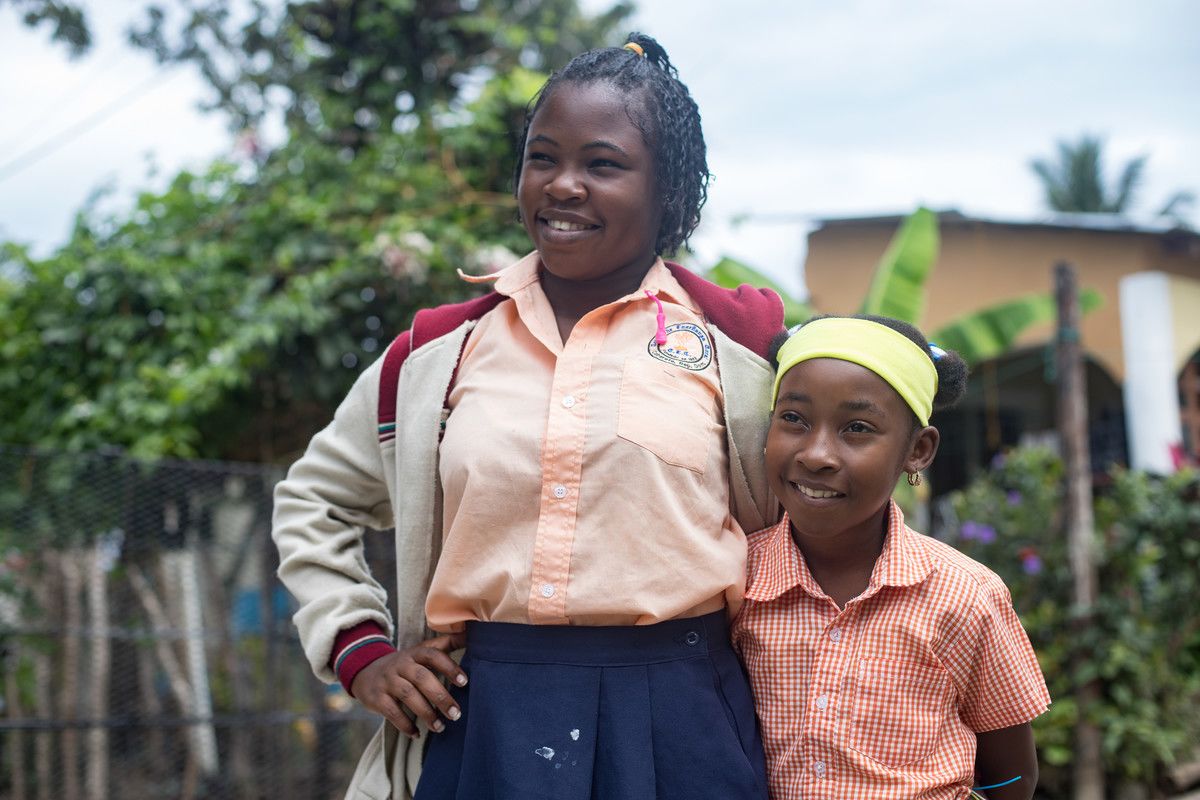
Alexandra and Yohanna have big dreams for the future.
Alexandra and Yohanna have big dreams for the future.
Alexandra has dreams for Yohanna, too.
"I want her to complete her studies, become a professional. To always feel empowered. To never give up on her dreams. Not for anyone or anything. To continue as she is, empowered."
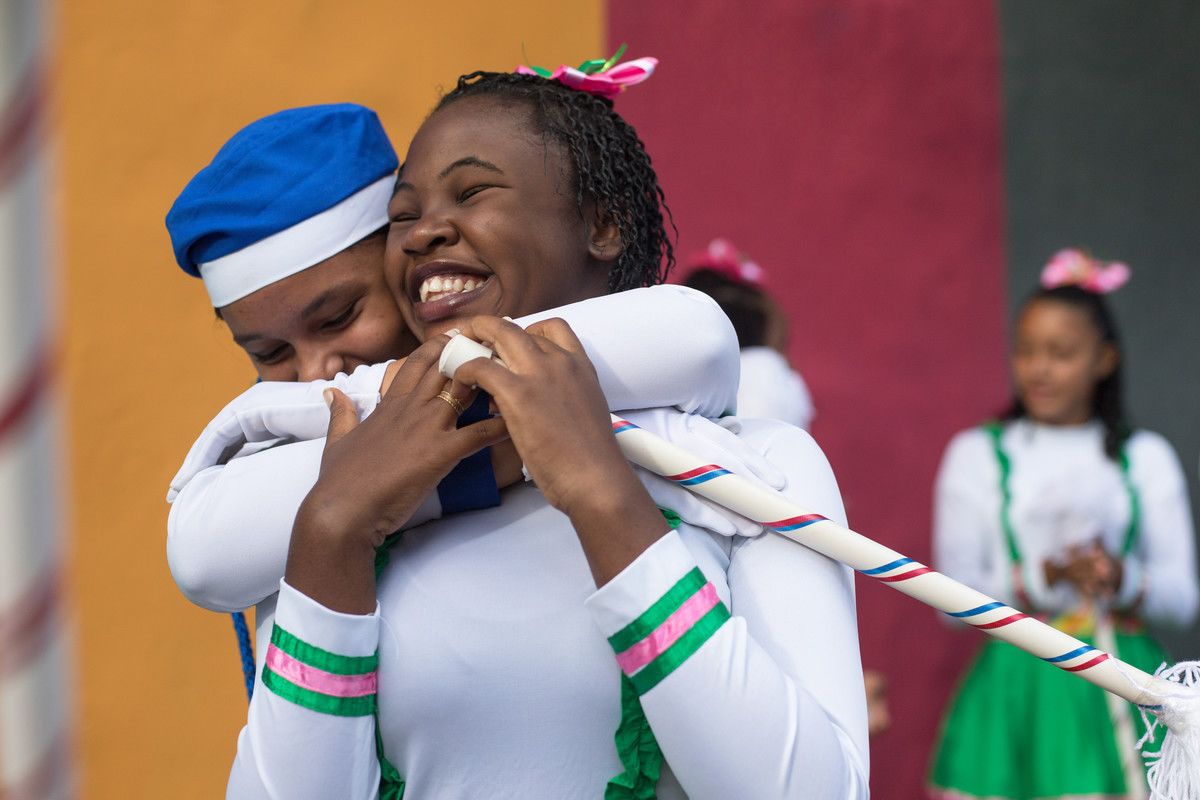
YOHANNA
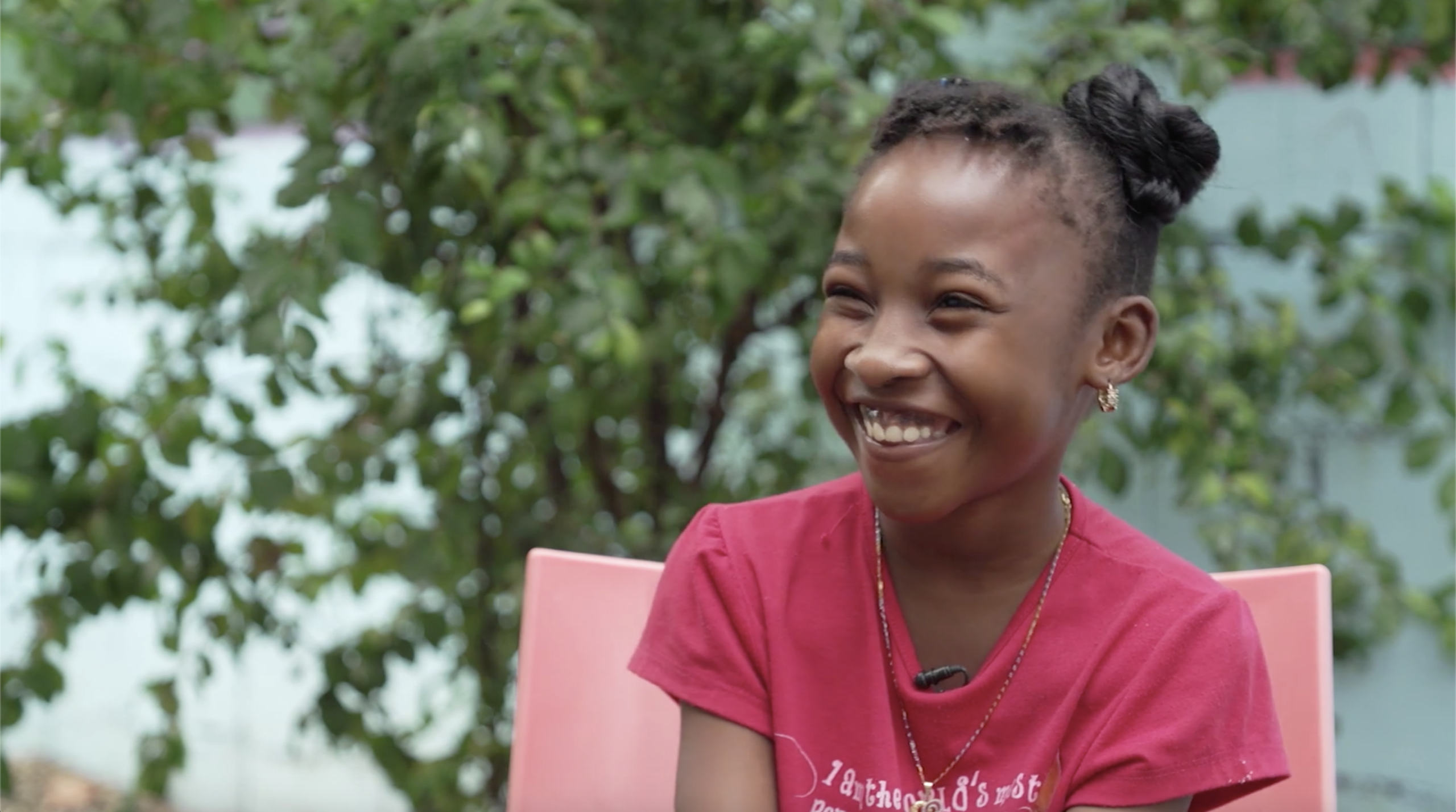
Yohanna is ten years old, and she's already set against early marriage.
"As a young girl, I shouldn't marry an older man. I need to finish school first, and then go to university.
She plans to learn and earn, supporting herself rather than depending on a man.
"I want to build a house for my family."
When asked what her favourite thing to do here is, Yohanna grins.
"All of them."
But if she could only pick one, it would be maths.
"Before, I didn't know how to add. And thanks to maths, now I can do it."
On the day we meet Yohanna, she's got a dance performance.
"I am a little nervous, but that won't stop me" she says.
"Dancing excites me. I feel moved while I dance, and it goes away when I stop. Shyness also goes away when I dance."
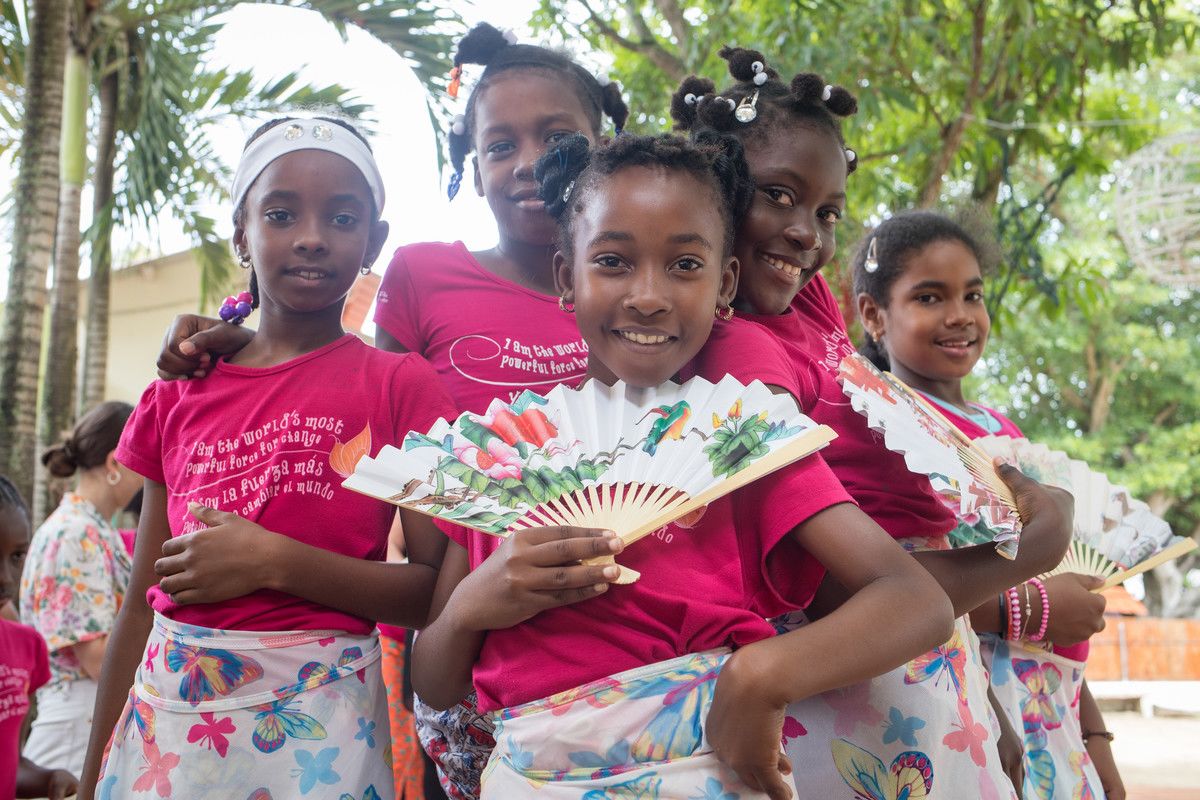
Yohanna at the Mariposa dance performance
Yohanna at the Mariposa dance performance
"When I grow up, I want to be a chef.
"I believe girls can do the same things boys can do. Even if someone would say [that being a chef is not for girls], it wouldn't stop me."
Yohanna and Alexandra are in school, learning, growing, and getting ready to take flight.
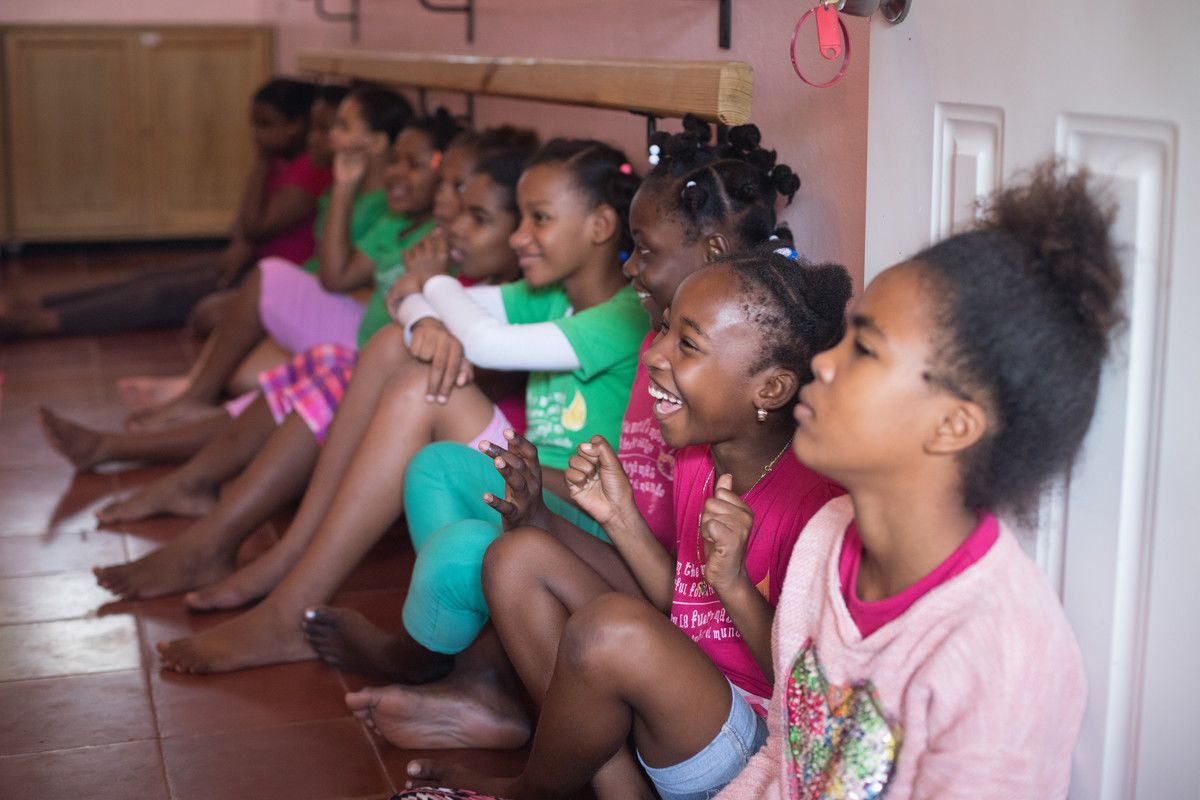
NAOMI
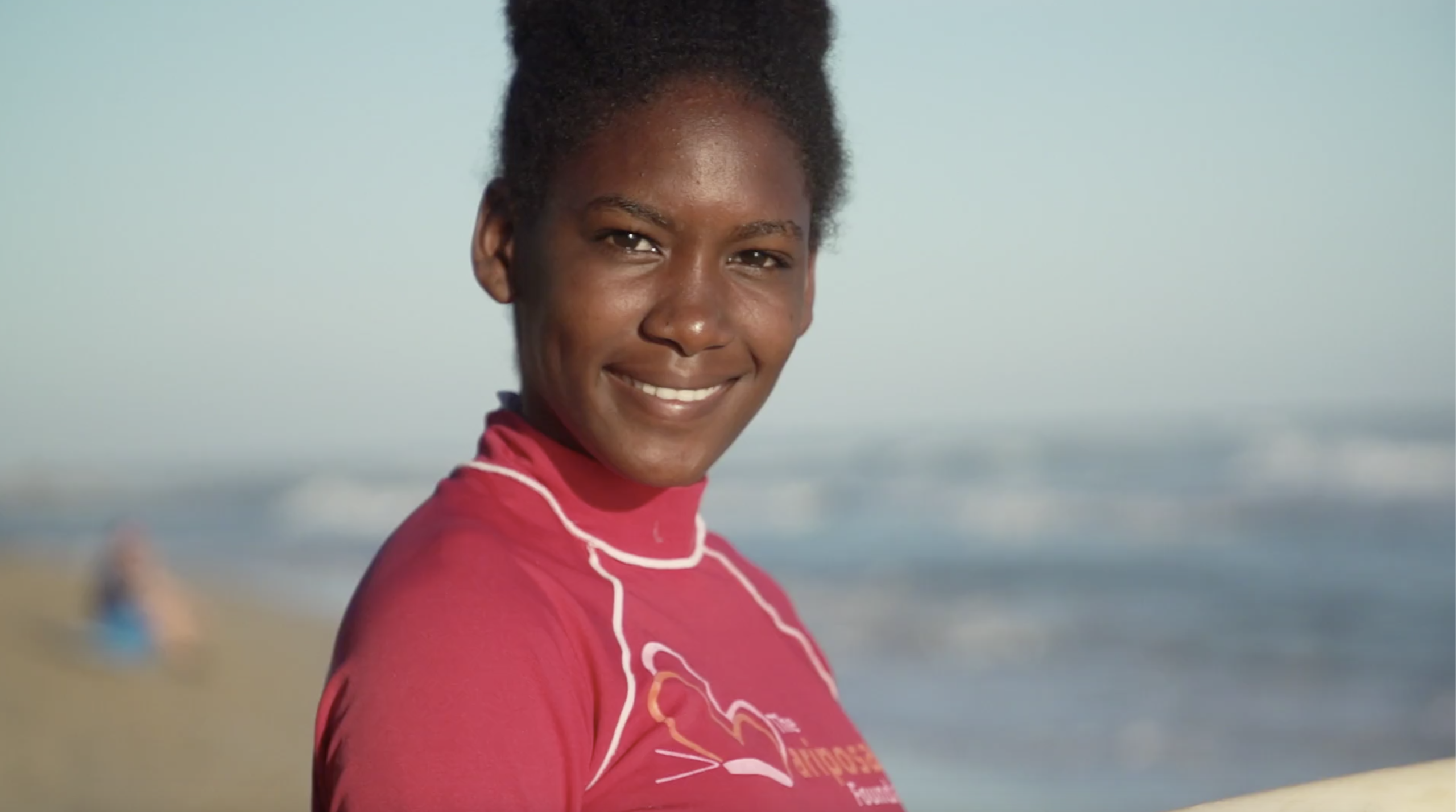
Earlier, we met Mabreidy, who became pregnant at 17 and had to leave school.
Mabreidy has a younger sister, 16-year-old Naomi.
She's growing up in Cabarete, like the other Mariposas.
Naomi and her sister Mabreidy
Naomi and her sister Mabreidy
"There are girls here that quit school, they get pregnant, and give up their future just because of one person who only wants a fling. For one person that says 'Yeah, I love you.'"
"The girls fall in love, and then do things that are wrong," says Naomi.
"The consequences are that they can't get a job easily, they don't have enough education. Also, they can't find a stable relationship.
"They just pick up guys, anybody that they can get, and they hurt their chances of having someone in their life."
That's not what happened to her sister Mabreidy, but it's all too common here in Cabarete.
Naomi's dreams for the future don't involve early marriage or early motherhood. She wants to study, work and have a stable family life.
"Education is so important because you learn. You learn other languages, how to get a job, how to be civil with other people, how to be community-minded, how to express yourself."
"My goal is to be in Cirque du Soleil, and be a professional surfer. I'd also like to be an acrobatics teacher."
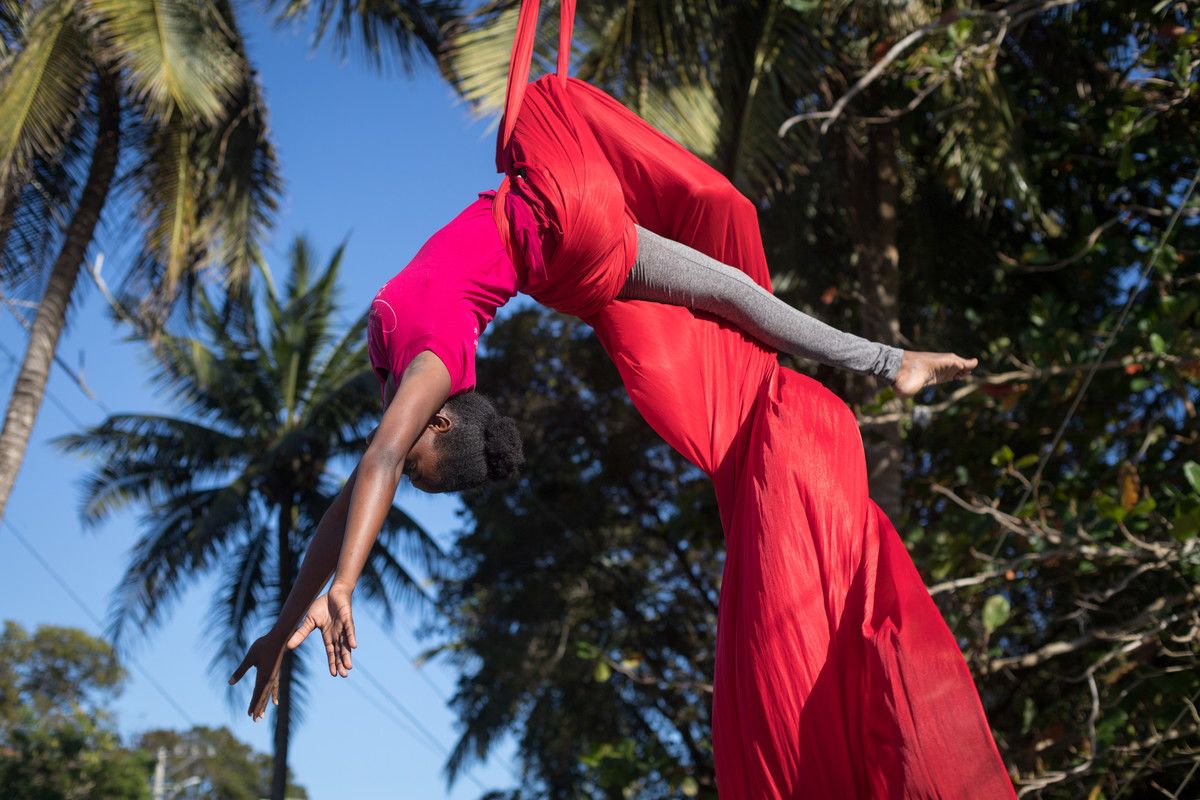
Naomi soars through the sky on the aerial silks
Naomi soars through the sky on the aerial silks
"At first I was afraid [of learning aerial gymnastics] but you get used to it.
"It's a fantastic thrill. I love it so much. Those emotions make me feel free.
But while Naomi is free to soar through the sky on her aerial silks, her sister has responsibilities at home. She has two children to care for.
"Mabreidy is a good mother. But she’s also good at kite-surfing and an amazing swimmer. She’ll be a great instructor at both.”
Mabreidy was a ‘Mariposa’ before she had her baby. She was also able to teach swimming classes for the organisation as a young mother.
“I have done a lot in my life because of my experiences with Mariposa DR Foundation. I know how to teach swimming classes to children and I can kite-surf,” Mabreidy tells us.
“I was able to teach the girls about my experience at the same time as teaching classes. It’s an opportunity for me to help other girls.”
“I don’t want to give my children the same life I’ve lived. I want to get ahead and I want to study so that I can give them a good upbringing. So that they can see I’m a strong woman.”
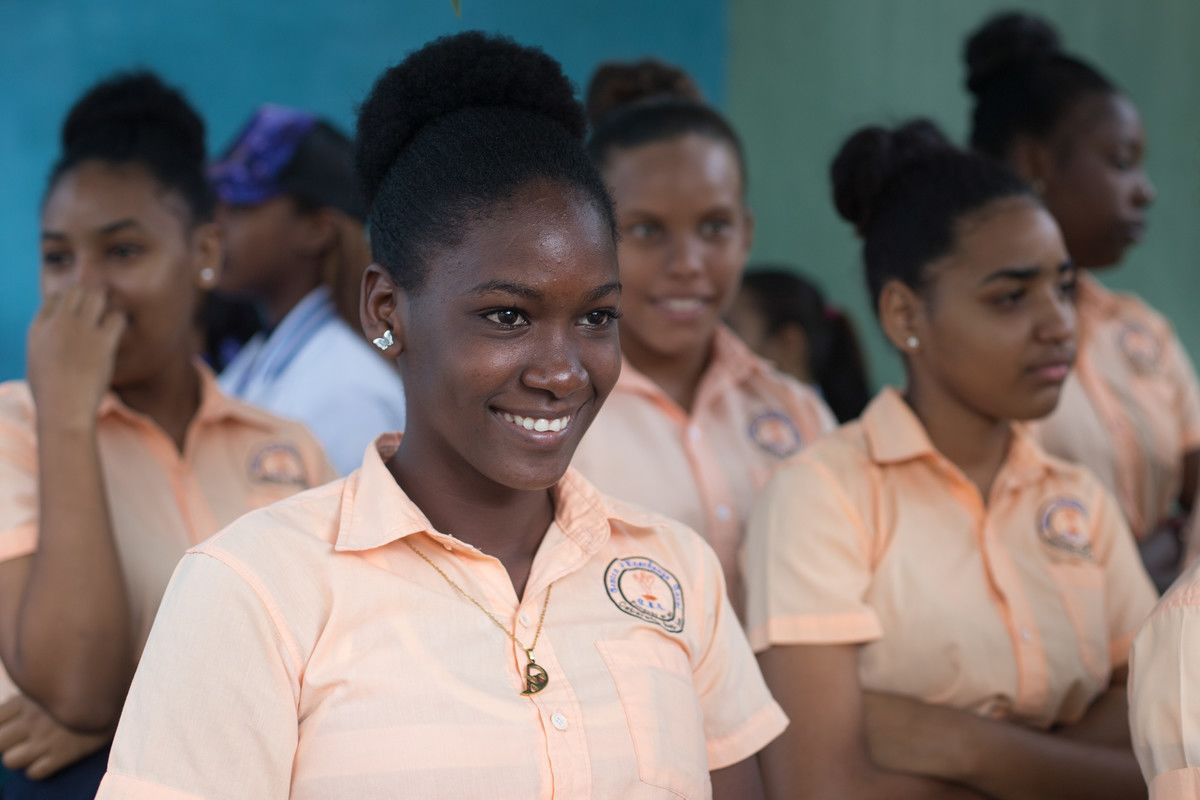
The most powerful force for change
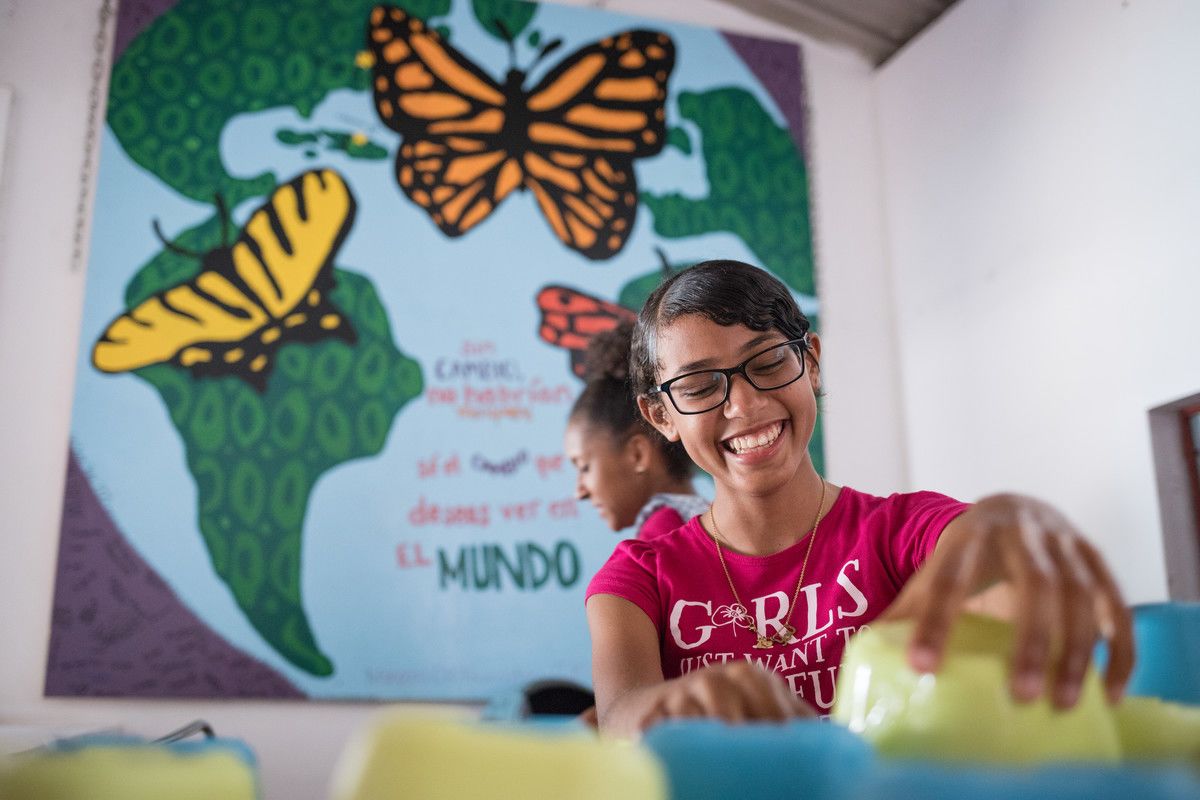
"We work mainly with girls because we know they are the driving force that will change not just their future, but the whole community and the next generation," Amanda explains.
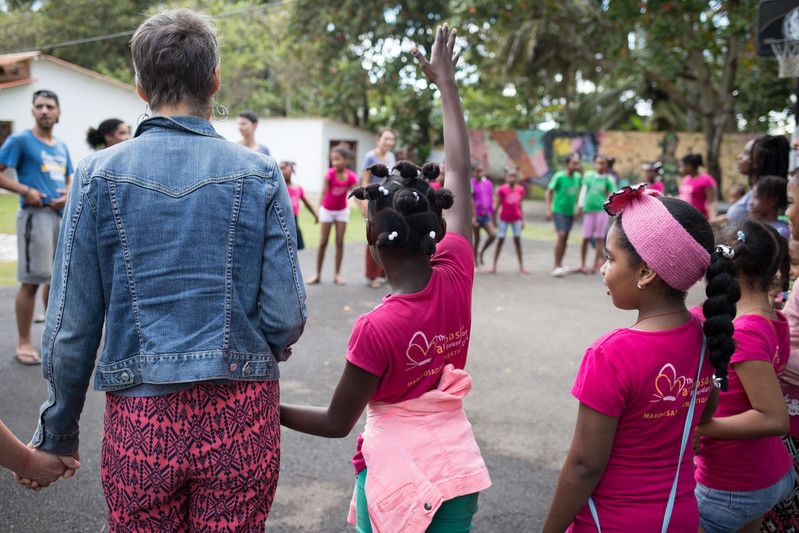
Girls like Alexandra, Yohanna and Naomi aren't just changing their own lives.
From friends, to siblings, to their own children if they have them in the future, the Mariposas are passing on new values.
It's something, resident Psychologist Alexandra Milian has seen over her years working at the Mariposa DR Foundation:
"There is a family that generation after generation has had children before age 15. We have a girl from this family who is 18 years old and she is finishing up her high school diploma. She hasn't got married, or pregnant and she is planning to go to university."
At any one time, hundreds of girls pass through the doors of the centre.
Each Mariposa learns how to unlock her potential.
She learns about sexual health so she can make safe choices.
She learns to embrace and care for the natural world.
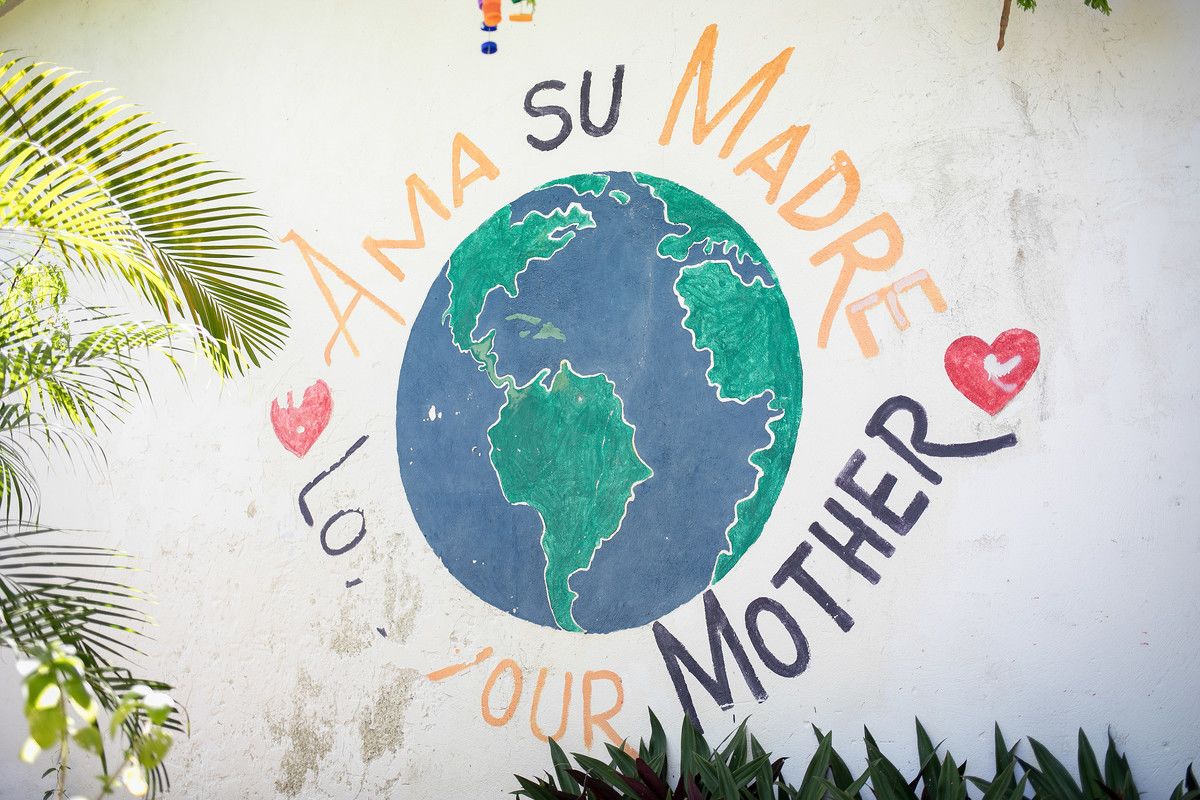
"Love your mother (earth)" says one of the Mariposa Foundation murals
"Love your mother (earth)" says one of the Mariposa Foundation murals
These Mariposas remind us that, with the right support, girls can achieve anything.
When it comes to their dreams, the sky's the limit.
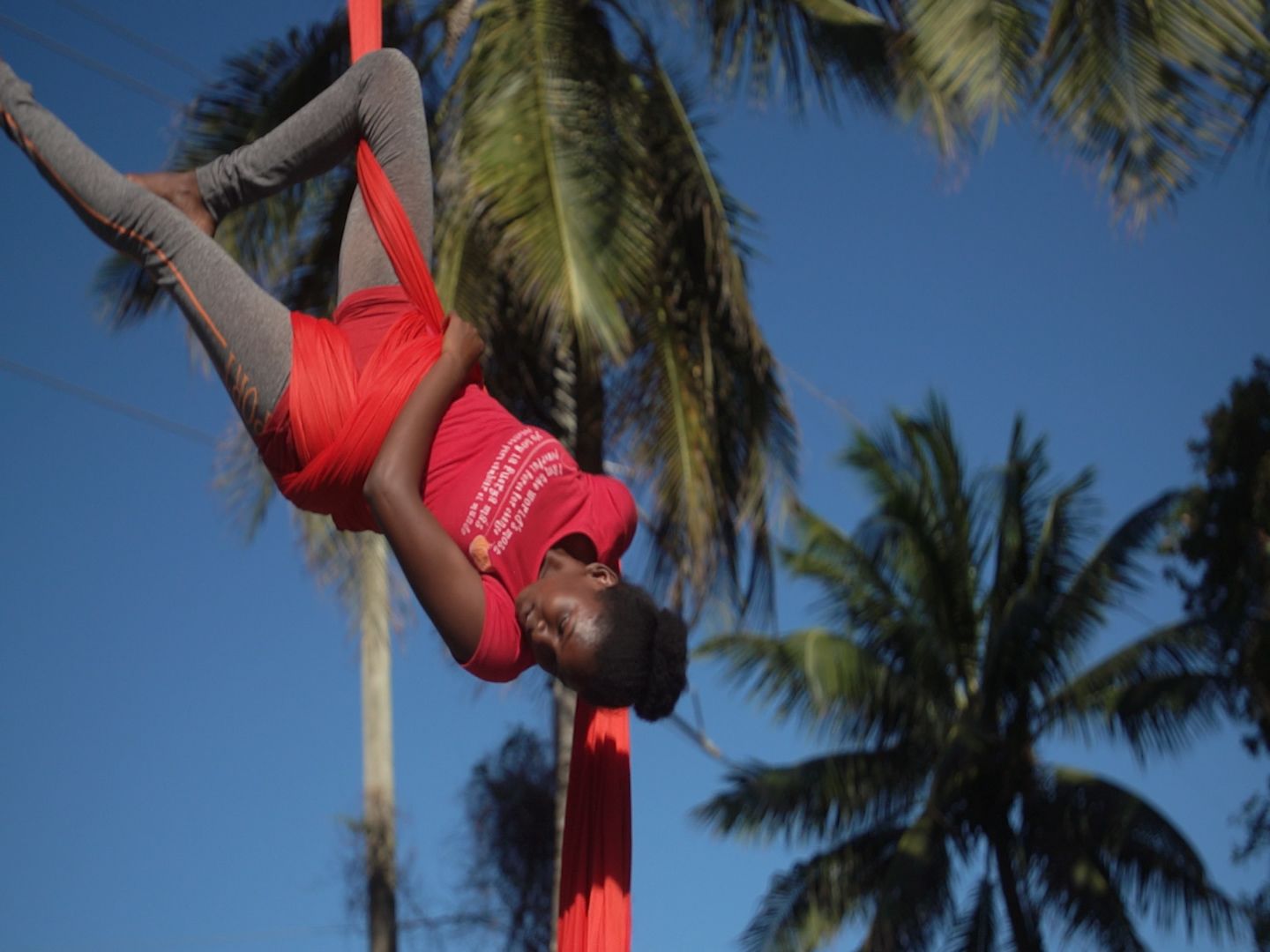
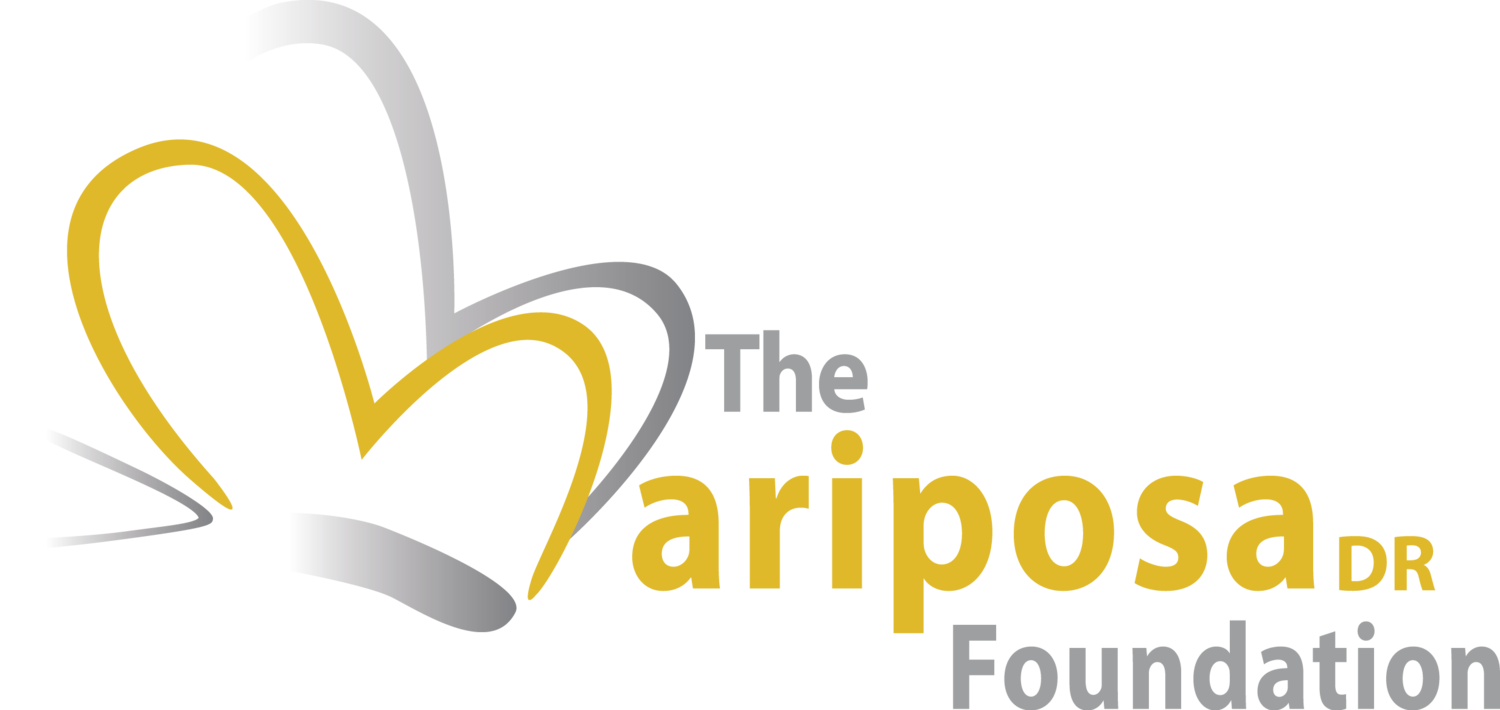
The Mariposa DR Foundation educates and empowers girls in the Dominican Republic to create sustainable solutions to generational poverty.
Find out more about Girls Not Brides member, Mariposa DR Foundation and donate to their work through Global Giving.

Every year, 12 million girls marry before the age of 18. Child marriage happens across countries, cultures and regions.
Girls Not Brides is a global partnership is made up of over 1,000 organisations like International Rescue Committee who are working to end child marriage and support girls to reach their full potential.
Find out more about Girls Not Brides.
Photos: Girls Not Brides/Fran Afonso
Video: Girls Not Brides/Ellie King
Words: Ettie Bailey-King
